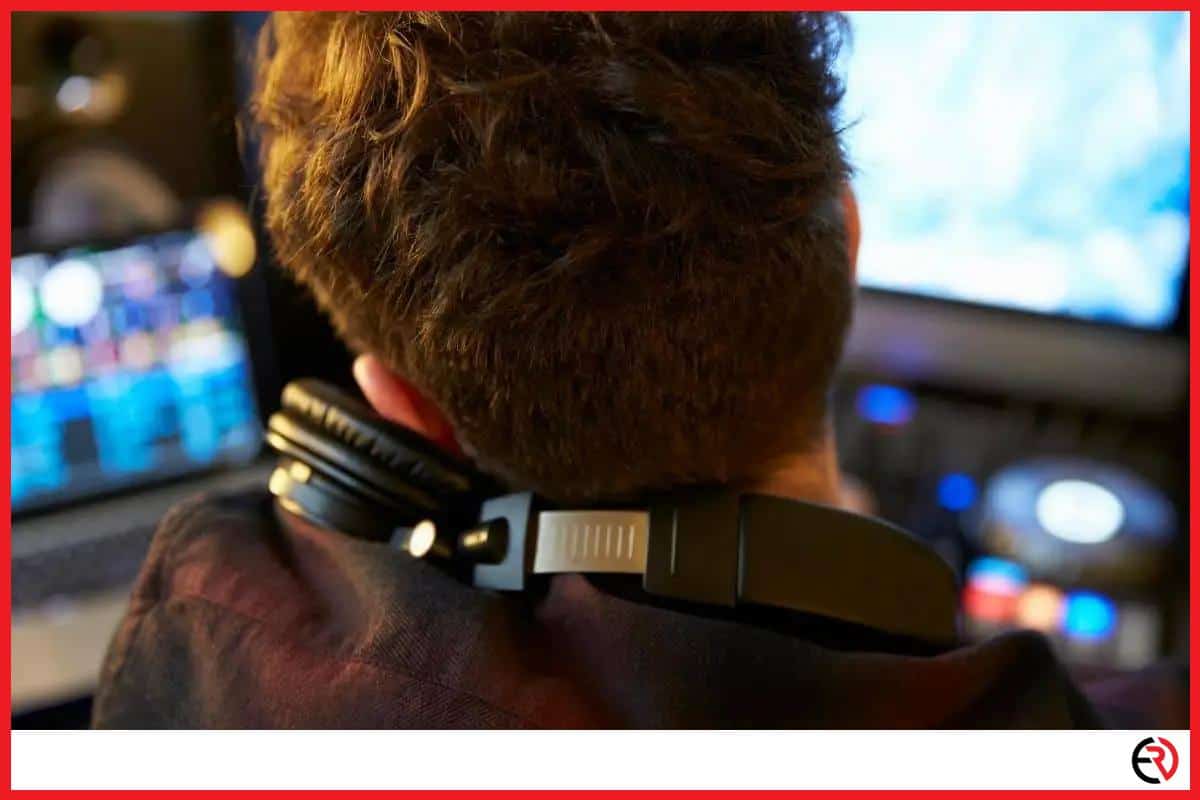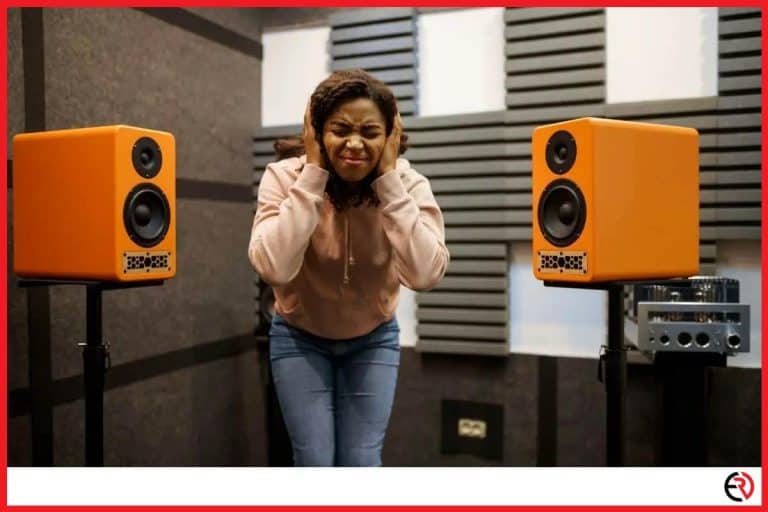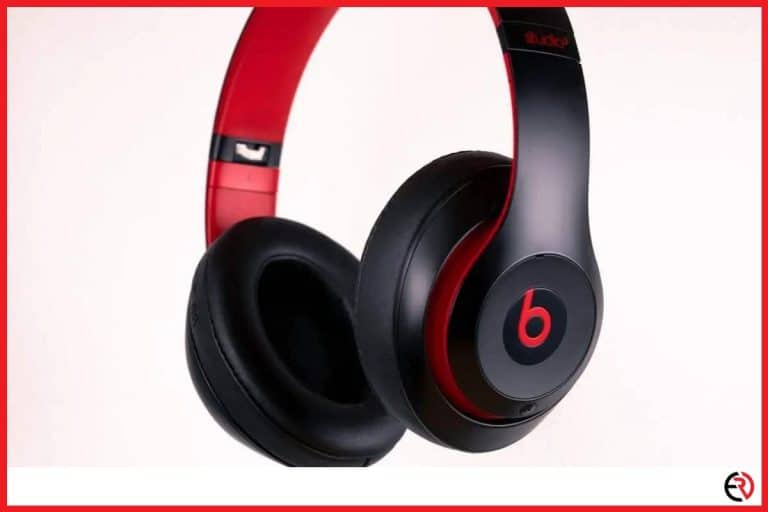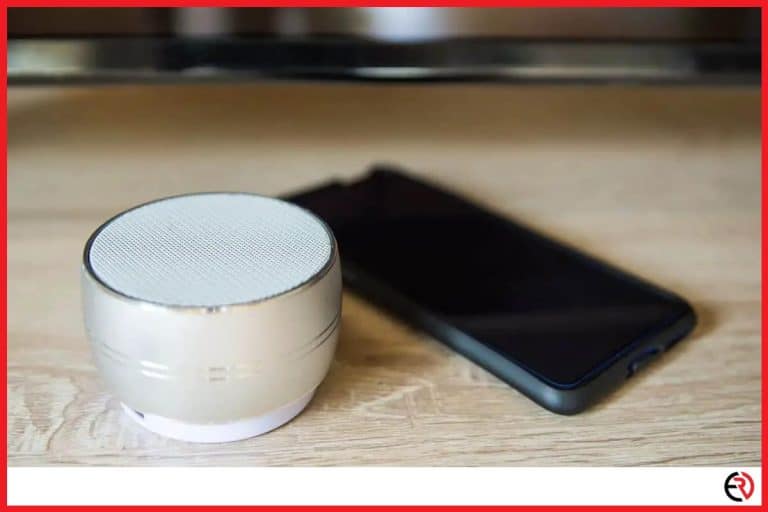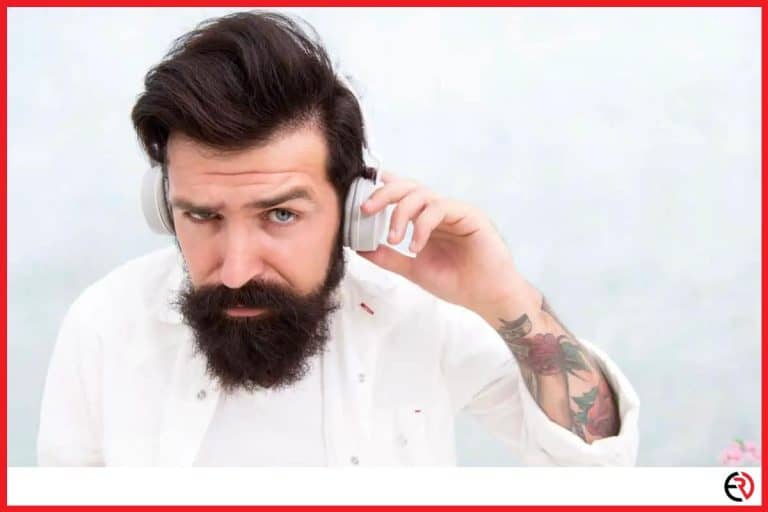Can You Produce Music with Bluetooth Headphones?
This post may contain affiliate links which means that, if you choose to make a purchase, I may earn a small commission at no extra cost to you.
Anybody serious about producing their own music needs to make sure they have the best equipment, that includes using the best headphones available to them. With many different types of studio-quality headphones available using a variety of different technologies, how do you know which ones are best for you? That’s a tricky question to answer and will depend on what you want from your set up. If you are just setting up your equipment or looking for a new set of ‘cans’ then one of the first questions you will need to answer is – should you go with wired or use Bluetooth for connecting to your system?
At the end of the day, audio quality is paramount for music production and should never be sacrificed, and while Bluetooth is an incredibly convenient technology, can a wireless connection give you the same level of sound you get with a nice thick, robust cable and jack? Let’s not beat around the bush further and answer the question:
Bluetooth connections are fine to use in the production of music, but when mixing and mastering tracks, quality wired headphones and studio monitors will give you a better sound quality that can elevate the quality of audio produced.
We’ll discuss later in the article why wired beats Bluetooth, but first:
What are the benefits of producing music with Bluetooth headphones?
Bluetooth is a wireless technology that’s been around for quite a few years now that allows users to connect devices together without cables. Bluetooth can be found in a vast array of electronic devices today and is fast becoming the most convenient way to connect electronic items together. But what are the advantages of using Bluetooth in your music production set up? Let’s have a look:
Ease of connection and convenience of use
Let’s be honest, wired connections are a hassle. Getting wires stuck and having headsets pulled off as you try to move around is a common problem for any music producer and being tied to the same spot in your studio can soon become limiting and tiring. Bluetooth headphones free you from confinement and make sure that you don’t get in a tangle when you snag the cable. Who doesn’t want to freak out when they are laying down a track? With Bluetooth you can cut a rug without breaking your neck or your headphones.
The lack of cable also makes wearing Bluetooth headphones far more comfortable than wired. Cables are cumbersome and catch on clothing and other equipment. Cutting the cord is a great way to make music production easier and less restricted.
Audio quality is (now) pretty good
Like all technologies, Bluetooth has gone through a range of improvements and versions since its first release and with each new iteration, audio quality has generally gotten better and better. The latest version of Bluetooth (Bluetooth 5.0) now gives excellent audio quality… for wireless technology. To the layman’s ears, a good quality Bluetooth headset will sound incredibly close to a comparable wired set. But in music production, audio quality is everything… more on this later.
Bluetooth headphones look cool
Wireless headphones really can look cool. Look at the latest Beats wireless sets and tell me they don’t look amazing? Without an unsightly cable spoiling their aesthetic, you get a more sophisticated look with sleek, modern designs. Of course, looks aren’t everything but it doesn’t hurt.
The drawbacks of using Bluetooth Headphones for music production.
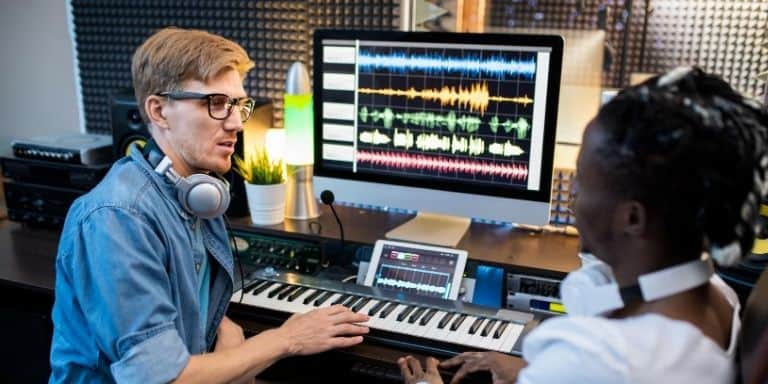
Wired headphones sound better and generally have better bandwidth
The general rule is that Bluetooth simply doesn’t sound as good as wired, and this is mainly down to the extra bandwidth a good cabled device gives. That’s not to say all wired headsets are better than every Bluetooth headset you come across. Some cheap wired sets can give similar or worse performance to Bluetooth, but at the top end, Bluetooth bandwidth is just too narrow to transfer the range of sounds that wires can. The extra technology required for Bluetooth (batteries, etc.) also limits the space available for audio drivers. This generally means drivers are smaller in Bluetooth headsets. Bigger drivers = louder and, more often than not, better sound.
Batteries can be a pain
While wireless headphones offer the convenience of movement, they do so at the expense of other basic conveniences we’ve come to expect from wired sets. To give Bluetooth its portability it needs to be paired with a battery. Batteries are heavy and eventually run out of power and need to be charged. If you really need your headset for a vital recording session, finding it out of juice can be incredibly frustrating. Not only that but batteries eventually degrade, and their performance reduces. Replacement batteries can be expensive if you can replace them at all and if you can’t, you end up stuck with a dead headset that needs replacing.
Bluetooth is expensive
Bluetooth technology comes at a premium and the best headsets are generally a good chunk of change more expensive than their wired counterparts. If you take the best wired headsets and the best Bluetooth ones, you’ll find that not only will the wired ones give you better sound, but they will be cheaper too. The extra cost of batteries and wireless tech pushes production costs up and can sometimes lead to cuts elsewhere in things like build quality.
Wireless technology can be flaky
How many of you connect your phone to your car to play music? How many connect to a wireless speaker system? Okay, let’s ask another question, how many times have you lost connection? All wireless technology is prone to interference from other electronic devise. Bluetooth is no exception. At home, losing connection is not something we get too upset about. But in a music studio, a loss of connection can set you back and seriously harm your work.
What features should I look for in a Bluetooth Headset?
Sound Quality
Cheap Bluetooth headsets can have incredibly poor sound quality. Make sure you check out any potential headsets before buying and look for things like HD stereo sound or aptX technology to ensure they deliver on the audio front. The general rule is the bigger the drivers in the headset, the better the sound. 40mm is a good size so make sure your headset has at least this size. Our biggest tip is to test the headset out before dropping any money. Listen to the quality and if it doesn’t cut it, try out a different one.
Battery Life
There’s nothing worse than getting into the middle of laying down a track and your headphones giving up due to a dead battery. Some Bluetooth headsets have an incredibly limited battery life and keeping them juiced can be a full-time job. Check with any potential headset’s documentation for how long they can run on a single charge and make sure you go for one that will last a decent session.
Transmission Range
While the transmission range of your headset may seem a little insignificant when you’re producing music in a studio, you may be surprised at how little distance you get on some headphones, especially when you throw in interference from all the other electronic devices into the mix. Make sure you choose a headset that allows you to walk around your studio without dropping audio or losing connection. After all, what’s the point in going wireless if you can’t be mobile.
Best Bluetooth Headphones Available Right Now
Best High-End Bluetooth Headphones: Bower & Wilkins PX Noise Cancelling Headphones

Bower and Wilkins have long been known for great wired headsets and have recently thrown their premium hat into the noise-cancelling Bluetooth headphone mix. The Bower & Wilkins PX really makes an entrance with stylish looks and a comfortable fit. Sound quality is the best you can expect from Bluetooth with current technology and isn’t far away from a good wired headset. These headphones ooze quality and they are both sturdy and well made. Yes, they are expensive but worth the cost.
Best
Conclusion
If you’re serious about producing your own music, then a good set of headphones is essential. And while Bluetooth offers less in terms of audio quality when compared to wired headsets, it does offer a convenience and ‘cool’ factor that shouldn’t be sniffed at.
Should you use Bluetooth in your studio? That depends on what you are doing. Producing tracks with a set of Bluetooth cans is perfectly possible but when it comes down to the serious business of mixing and mastering tracks, the sound quality just won’t cut it. When every beat and note matters you want the best quality audio available and that means getting a wired headset at the end of the day.

